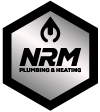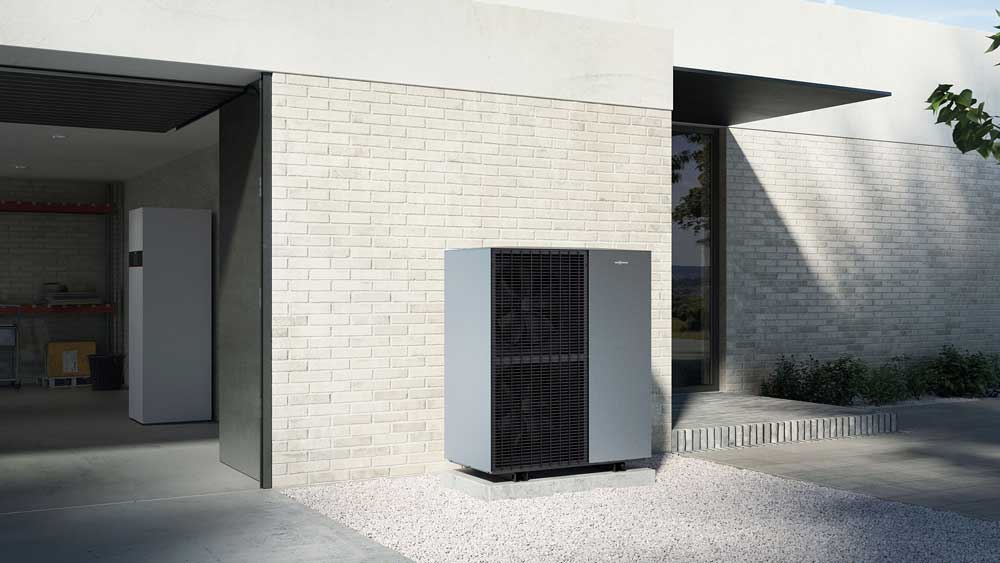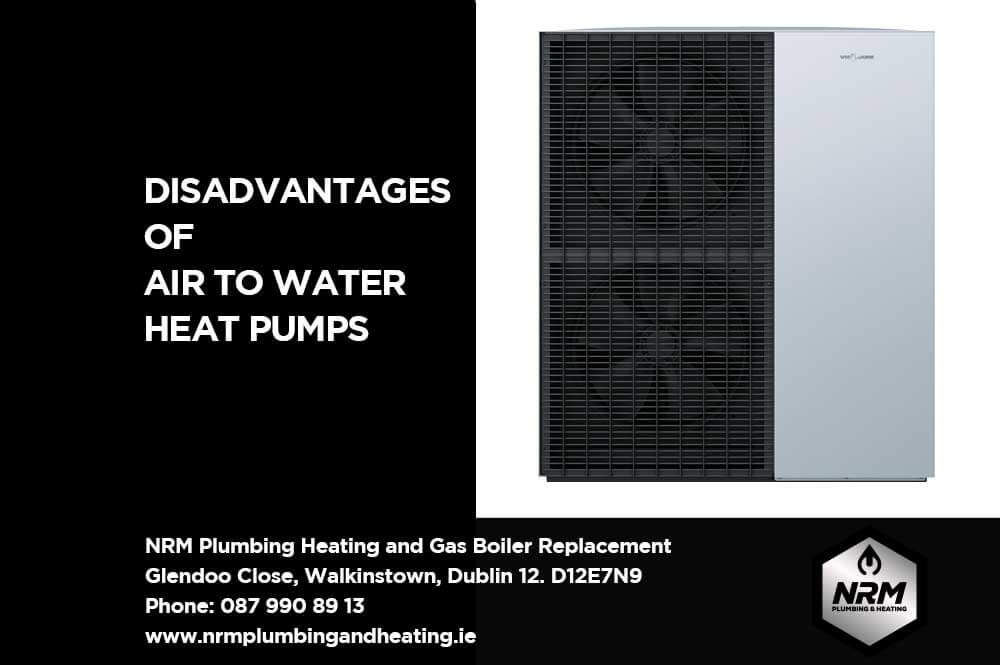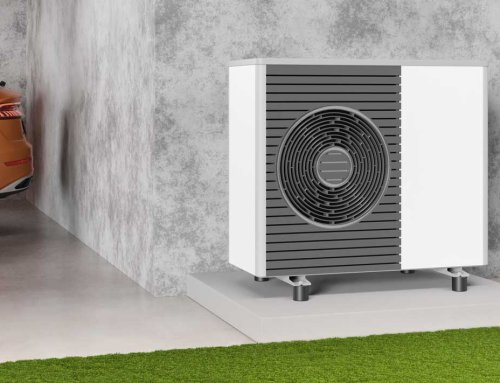Table of Contents
- High Upfront Cost
- Requires Electricity to Operate
- Dependence on Outdoor Temperatures
- Noise
- Installation Complexity
- Maintenance
- Limited Capacity
- Weather Dependency
- Risk of Freezing
Disadvantages of Air to Water Heat Pumps – Air to water heat pumps have become an increasingly popular choice for homeowners and businesses alike, as they are energy-efficient, environmentally friendly, and can be a great alternative to traditional heating and cooling systems. However, like any other heating and cooling system, air to water heat pumps have their own set of disadvantages that need to be considered before making a decision. In this article, we will discuss the disadvantages of air to water heat pumps and how they can impact your heating and cooling needs.
High Upfront Cost
One of the most significant disadvantages of air to water heat pumps is their high upfront cost. Air to water heat pumps are more expensive than traditional heating and cooling systems, (More info on – What Is The Best Heating System For A House In Ireland ?) which can be a significant barrier to their adoption. The high cost of air to water heat pumps can be attributed to the fact that they are more energy-efficient and eco-friendly, which requires advanced technology and high-quality materials to manufacture. However, it is important to note that while air to water heat pumps may have a higher upfront cost, they are more energy-efficient, which can help to offset the initial investment over time. The savings in energy costs can be substantial, and over time, the initial investment can be recouped.
Requires Electricity to Operate
Another disadvantage of air to water heat pumps is that they require electricity to operate. While they are more energy-efficient than traditional heating and cooling systems, they still require electricity to power the pump and fans. This means that they may not be the best choice for areas with high electricity costs, as it can increase the overall cost of using an air to water heat pump. However, in areas with low electricity costs, air to water heat pumps can be a cost-effective alternative to traditional heating and cooling systems.
Dependence on Outdoor Temperatures
Air to water heat pumps rely on outdoor temperatures to operate effectively. In colder climates, the efficiency of the heat pump decreases, which can result in higher energy costs. Additionally, air to water heat pumps may struggle to maintain a comfortable temperature during extreme weather conditions, such as heat waves or cold snaps. During these conditions, the air to water heat pump may need to run more frequently, which can increase energy costs. Therefore, it is essential to consider the climate and weather conditions of your area before installing an air to water heat pump. (More info on – Heat Pump Installers Ireland recommends)
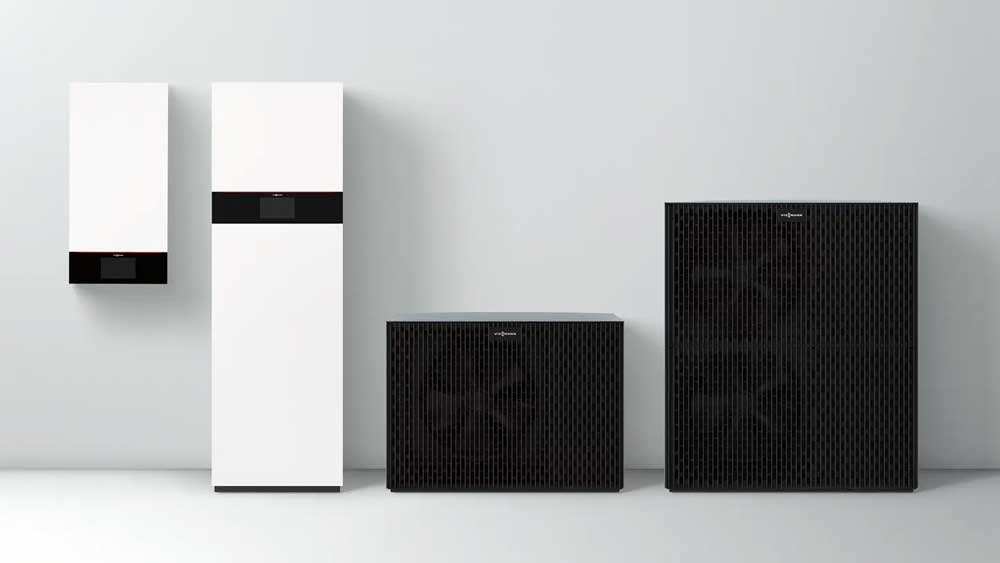
Image credit: www.viessmann.co.uk
Noise
While air to water heat pumps are generally quiet, they can still produce some noise, which can be a concern for some homeowners. The noise is typically produced by the outdoor unit, which contains the compressor and fan. However, newer models are designed to be quieter and may be a better option for those who are sensitive to noise. It is also important to note that noise can be minimized by ensuring that the unit is installed correctly and regularly maintained.
Installation Complexity
Air to water heat pumps are more complex to install than traditional heating and cooling systems. They require specialized knowledge and equipment, which can increase the installation costs. Additionally, they may require modifications to the existing heating and cooling system, which can further increase the installation complexity and cost. It is essential to have a professional assess your heating and cooling needs before installing an air to water heat pump to ensure that the installation is done correctly. (More info on – Heat Pumps Ireland – RGI & SEAI registered installers)
Maintenance
Like any other heating and cooling system, air to water heat pumps require regular maintenance to operate effectively. This can include cleaning the filters, checking the refrigerant levels, and inspecting the system for any potential issues. However, maintenance requirements may be less frequent than traditional heating and cooling systems, which can be a benefit for those who do not have the time or resources to perform regular maintenance. Regular maintenance of the air to water heat pump can help to increase its lifespan, reduce energy costs, and
ensure that it operates effectively and efficiently. It is important to have a regular maintenance schedule and have a professional conduct regular maintenance to ensure the air to water heat pump continues to function optimally.
Limited Capacity
Another disadvantage of air to water heat pumps is their limited capacity. They may not be able to provide sufficient heating and cooling for larger homes or buildings, which can require multiple units to be installed. This can further increase the cost and complexity of installation. It is important to have professional heating engineers assess your heating and cooling needs before installing an air to water heat pump to ensure that it has the capacity to meet your needs.
Weather Dependency
As air to water heat pumps rely on outdoor temperatures, they are also dependent on weather conditions. During extremely cold weather conditions, air to water heat pumps may not be able to operate effectively, leading to an increase in energy costs. In contrast, during extremely hot weather conditions, air to water heat pumps may not be able to provide sufficient cooling, which can lead to an increase in energy costs. This dependency on weather conditions can be a disadvantage, especially in areas with extreme weather conditions.
Risk of Freezing
During cold weather conditions, there is a risk that the water inside the air to water heat pump may freeze, which can cause damage to the unit. This can result in costly repairs and even the need to replace the unit. It is important to ensure that the air to water heat pump is designed to withstand freezing temperatures and that it is installed correctly to minimize the risk of freezing.
In conclusion, air to water heat pumps have numerous advantages, including energy efficiency and environmental friendliness. However, they also have their own set of disadvantages that need to be considered before making a decision. These disadvantages, such as high upfront cost, dependence on outdoor temperatures, and maintenance requirements, need to be considered before deciding whether an air to water heat pump is the right choice for your home or building. Despite these disadvantages, air to water heat pumps can still be a great alternative to traditional heating and cooling systems, especially in areas with low electricity costs and mild weather conditions. It is important to consult with a professional and assess your heating and cooling needs before making a decision to ensure that you choose the system that is best suited for your needs. (More info on – Air to Water Heat Pumps)
FAQs about the Disadvantages of Air to Water Heat Pumps
Q: Are air to water heat pumps more expensive than traditional heating and cooling systems?
A: Yes, air to water heat pumps are generally more expensive than traditional heating and cooling systems. This is due to the fact that they are more energy-efficient and eco-friendly, which requires advanced technology and high-quality materials to manufacture.
Q: Do air to water heat pumps require electricity to operate?
A: Yes, air to water heat pumps require electricity to power the pump and fans. While they are more energy-efficient than traditional heating and cooling systems, they still require electricity to operate.
Q: Are air to water heat pumps dependent on outdoor temperatures to operate effectively?
A: Yes, air to water heat pumps rely on outdoor temperatures to operate effectively. In colder climates, the efficiency of the heat pump decreases, which can result in higher energy costs. Additionally, air to water heat pumps may struggle to maintain a comfortable temperature during extreme weather conditions, such as heat waves or cold snaps.
Q: How noisy are air to water heat pumps?
A: While air to water heat pumps are generally quiet, they can still produce some noise. The noise is typically produced by the outdoor unit, which contains the compressor and fan. However, newer models are designed to be quieter and may be a better option for those who are sensitive to noise.
Q: Are air to water heat pumps more complex to install than traditional heating and cooling systems?
A: Yes, air to water heat pumps are more complex to install than traditional heating and cooling systems. They require specialized knowledge and equipment, which can increase the installation costs.
Q: Do air to water heat pumps require regular maintenance?
A: Yes, like any other heating and cooling system, air to water heat pumps require regular maintenance to operate effectively. This can include cleaning the filters, checking the refrigerant levels, and inspecting the system for any potential issues.
Q: Can air to water heat pumps provide sufficient heating and cooling for larger homes or buildings?
A: The capacity of air to water heat pumps may be limited, and they may not be able to provide sufficient heating and cooling for larger homes or buildings. It is important to have a professional assess your heating and cooling needs before installing an air to water heat pump to ensure that it has the capacity to meet your needs.
Q: Are there any risks associated with using air to water heat pumps during cold weather conditions?
A: Yes, during cold weather conditions, there is a risk that the water inside the air to water heat pump may freeze, which can cause damage to the unit. It is important to ensure that the air to water heat pump is designed to withstand freezing temperatures and that it is installed correctly to minimize the risk of freezing.
Related search terms: air source heat pump disadvantages, disadvantages of air to water heat pump systems, air to water heat pump vs gas boiler, air to water heat pump problems, disadvantages of ground source heat pumps, are air source heat pumps reliable, how do air to water heat pumps work, air to water heat pump vs oil boiler, air to water heat pump running costs, disadvantages of air conditioning systems
Ever wondered about Condensing Boilers – A Beginner’s Guide….Check out our latest blog post for details.
